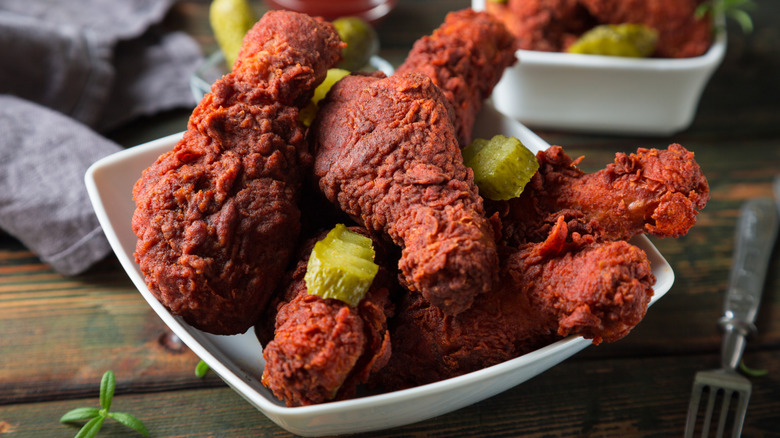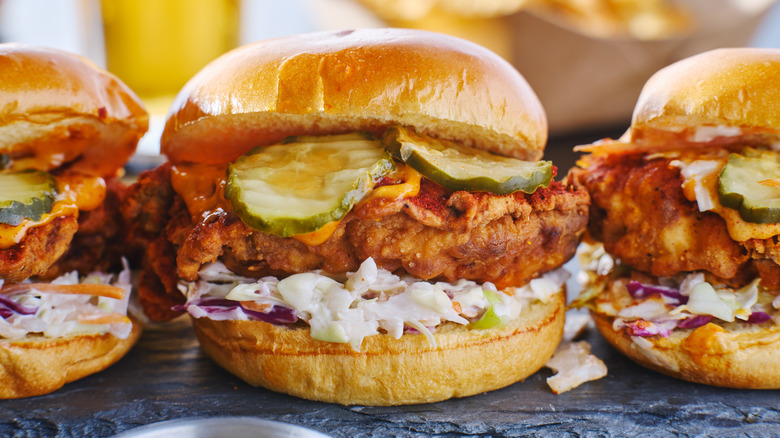What Gives Nashville Hot Chicken Its Signature Heat?
Nashville hot chicken has come a long way from its origins over a bad breakup, becoming one of the most beloved spicy dishes of the American South. Benjamin Kahriman, COO of Americano Restaurants with locations across America, spoke to Food Republic exclusively about how this dish manages to combine its signature heat and complex flavors to become more than just extra-spicy fried chicken.
"Cayenne pepper is a primary component of the dry spice blend that forms the base of the 'hot' element in many chicken recipes, particularly fried chicken," Kahriman says. "Seasoning with cayenne pre-frying and throwing hot sauce [on] after the fact is like the difference between your home's foundation and a throw carpet to cover a wine stain on your carpet. One is a component or part of building a specific flavor profile and texture that defines the dish; the other is there to (lazily) cover something up."
Much like salting at every stage is a big difference between home and restaurant chefs, high-quality Nashville hot chicken must be infused with cayenne at every possible step to fully develop its taste. This dish isn't for the faint of heart, so while the heat may seem extreme, it's a key component of its larger flavor profile. Still, any ingredient used in such great abundance needs a bit of balance. Chefs temper the heat of Nashville hot chicken with sweet and cool additions to provide new flavors and keep their customers' palates from being overwhelmed.
How chefs balance Nashville hot chicken's cayenne flavor
While cayenne is the primary seasoning of Nashville hot chicken, Benjamin Kahriman warns home chefs from going overboard. "Avoiding the common mistake of overdoing the cayenne without proper balance will lead to a much more enjoyable and authentic result," he tells Food Republic.
"The key to balancing the intense cayenne heat is to use it in conjunction with fat, a touch of sweetness, a flavorful blend of other spices, and by serving it with traditional cooling accompaniments," Kahriman continues. He compares it to the popularity of chicken and waffles or sweet and sour chicken, two dishes that rely on the synergy between hearty fried poultry and sugary sauces. "Many recipes call for a touch of brown or white sugar in the spice blend to achieve that touch of sweetness. This sweetness provides a counterpoint to the heat, adding complexity and preventing the spice from being one-dimensional."
While this may temper the flavor of the chicken itself, there's still room for entirely new flavors that dress up Nashville's best creation. "Lastly, serve with cooling sides/accompaniments," Kahriman says. "Throw in some white bread (which soaks up some of the oil and heat) and dill pickle chips (the coolness and acidity help to cleanse the palate) or even ranch." Hot chicken and pickles are a match made in heaven because they both provide explosive flavors. However, pickles have the added benefit of using their sugar and acid to cool down the capsaicin in cayenne, making the dish's heat more tolerable for everyone.


